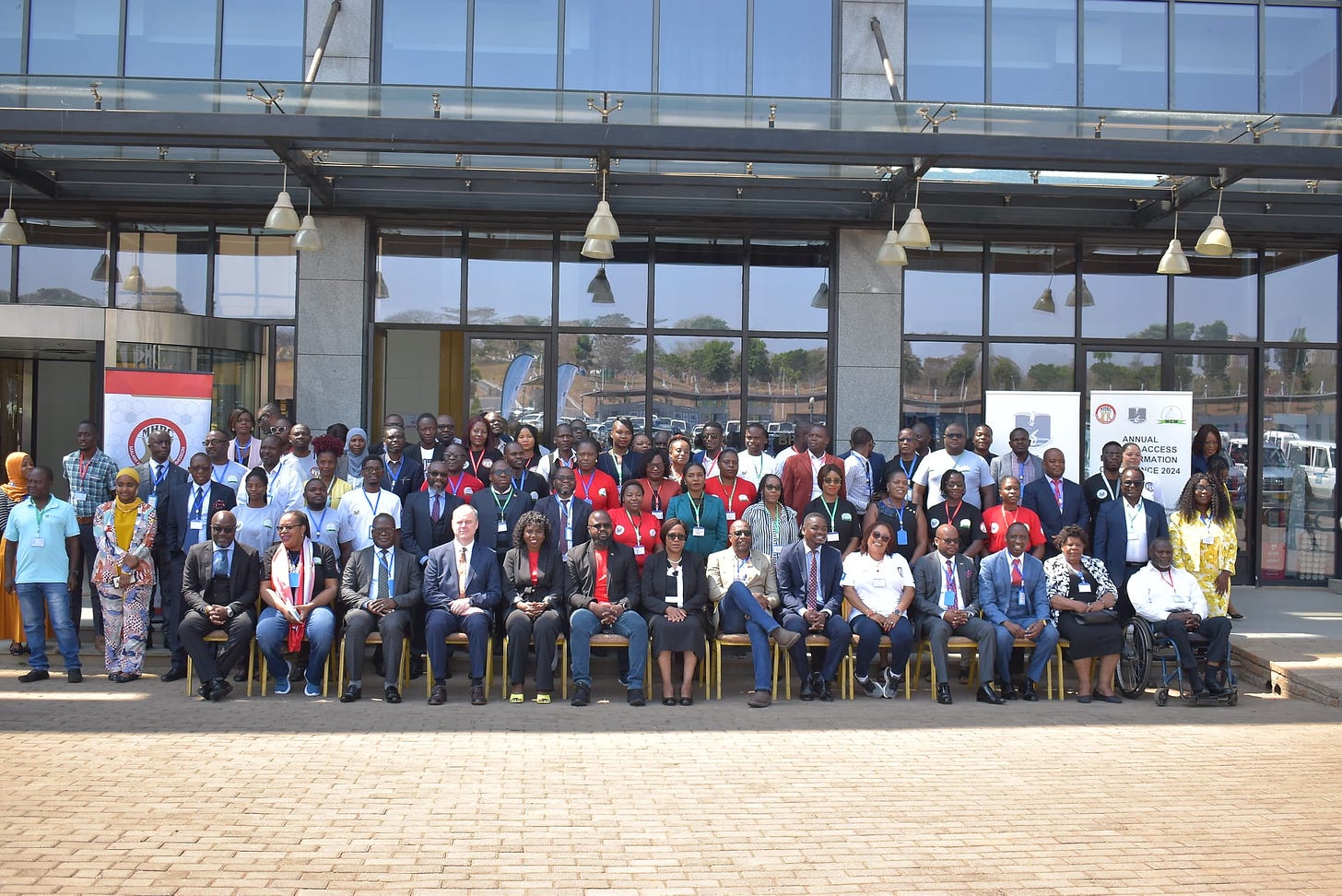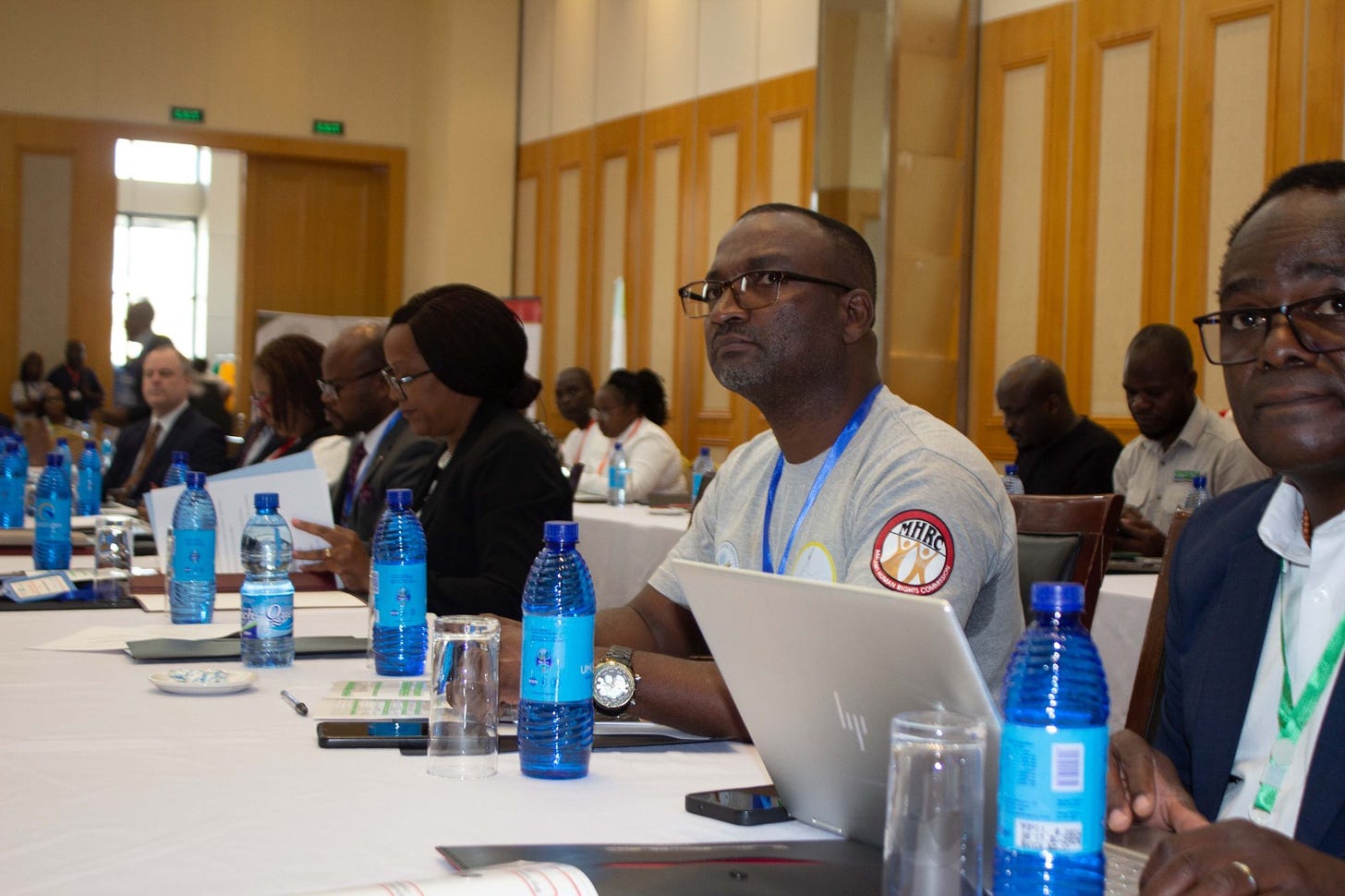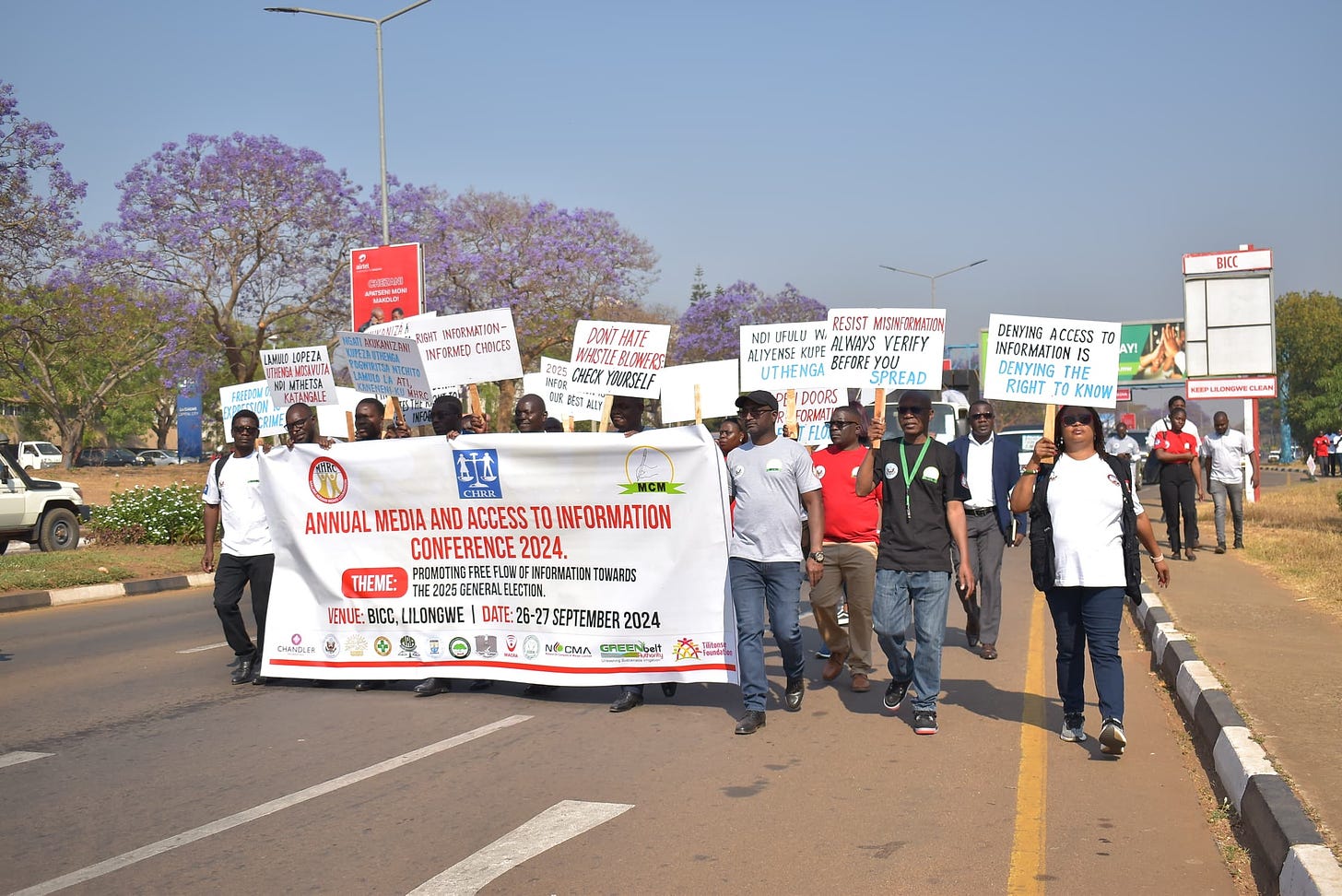Malawi Media Conference Emphasizes Transparency Ahead of 2025 Elections
Media organizations were called upon to enforce accountability journalism and provide diverse coverage, especially for marginalized groups, women, and youth.
LILONGWE, Malawi — The Annual Media and Access to Information Conference 2024 (AMATIC24) concluded Friday, emphasizing the critical role of transparency and free information flow in the lead-up to Malawi's 2025 general elections, writes Winston Mwale.
The two-day event, themed "Promoting free flow of information towards the 2025 General Elections," brought together key stakeholders including the Malawi Electoral Commission (MEC), media organizations, civil society groups, government officials, and development partners.
Moses Kaufa, Executive Director of the Media Council of Malawi, highlighted the conference's significance in fostering collaboration among various sectors to ensure an informed electorate.
"It is essential for each group to mainstream Access to Information, collaborate and embrace a unified approach to ensure that all Malawians have equal access to election-related information," Kaufa stated, emphasizing the need for a transparent, fair, and inclusive electoral process.
Key takeaways for the MEC included a commitment to enhancing transparency in the electoral process and strengthening partnerships with media organizations for capacity building and information dissemination.
The commission was also urged to engage more with stakeholders on crucial issues such as voter registration and the use of national IDs.
Media organizations were called upon to enforce accountability journalism and provide diverse coverage, especially for marginalized groups, women, and youth.
The conference stressed the importance of leveraging digital platforms to reach a wider audience and combating misinformation through responsible reporting.
Civil society organizations were encouraged to intensify grassroots engagement to combat voter apathy and strengthen monitoring efforts to ensure fair media coverage.
They were also advised to establish partnerships with media and MEC to support voter education initiatives.
The government and development partners were called upon to continue supporting capacity-building programs for media and civil society, as well as advocating for policy reforms that promote transparency and inclusivity in the electoral process.
The conference highlighted the need for research efforts focusing on understanding the dynamics of access to electoral information, media pluralism, and voter engagement.
A significant point of discussion was the Access to Information Act (ATIA). The conference emphasized the need for amendments to the Act, having observed gaps within its four years of implementation.
The Malawi Human Rights Commission (MHRC) was encouraged to strengthen its enforcement measures and hold non-compliant information holders accountable.
The conference also addressed the challenges faced by journalists when requesting information from public bodies, calling for support mechanisms to overcome such resistance.
As Malawi prepares for the 2025 elections, this conference sets the stage for increased cooperation among stakeholders to safeguard the integrity of the electoral process through improved access to information.
The emphasis on digital platforms, community engagement, and policy reforms reflects a comprehensive approach to ensuring a well-informed electorate and a transparent electoral process.
Meanwhile, Takondwa Jumbe, the organizing committee chairperson, praised the conference's success.
"We've explored the critical role of media in promoting electoral integrity," Jumbe said.
"Access to information is not just a right—it's the bedrock of a functioning democracy."
The two-day event gathered media professionals, government officials, and civil society representatives.
Discussions centred on combating misinformation and enhancing voter education.
Justice Annabel Mtalimanja, Malawi Electoral Commission chairperson, attended as a guest of honour.
Her presence underscored the official commitment to election transparency.
Jumbe acknowledged the event's financial backers. "To our sponsors: Chandler Foundation, US Embassy, Central Medical Stores Trust, MUBAS, MRA, Neef, Green Belt Authority, NOCMA, Macra, MEC, Escom, and Tilitonse Foundation; thank you for your unwavering support," she stated.
The outcomes of AMATIC24 are expected to guide the actions of various stakeholders in the coming months, as they work towards creating an environment of free information flow and transparent governance in the lead-up to the 2025 general elections.






